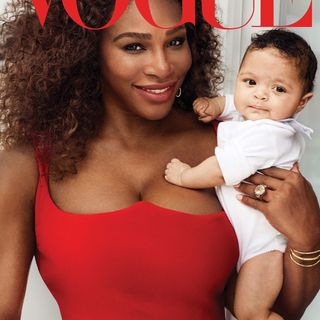
Aziz Ansari and the Black and White (and Grey) of Modern Romance
Over the weekend, a woman known as ‘Grace’ alleged sexual assault against comedian, actor and author of Modern Romance Aziz Ansari in an excruciatingly detailed account of their sexual encounter with the website Ba...

Over the weekend, a woman known as ‘Grace’ alleged sexual assault against comedian, actor and author of Modern Romance Aziz Ansari in an excruciatingly detailed account of their sexual encounter with the website Babe. (Ansari has denied assault.) It comes as an off-key coda to the #MeToo movement, or maybe this was the inevitable culmination of the overdue but frenzied outing of sexual predators in film and media: for far from being a cut-and-dry Weinstein-esque affair, the incident, depending on who’s reading it, seems either violating, or merely a banal story of a bad date.
It may be a fault in the writing of the article, which lingers in outrage on bizarre, innocuous details of the date — like Ansari offering Grace only white wine (gasp?) – a choice in reporting that nudges the account more toward a complaining BFF-postmortem of an unexpectedly bad date, than a serious and public accusation of crime. But what I was most struck by was the following fact: Grace’s use of “verbal and non-verbal cues” to communicate her discomfort. It’s unclear what those cues were in the article; it’s possible it was unclear what those cues were in real life, too, especially since at no point does Grace seem to have explicitly said no. She never ended the date, but rather stayed and continued to engage sexually with Ansari throughout the evening.
It is, of course, absolutely possible for a consensual encounter to turn unconsensual in the middle. It’s also equally plausible that remaining in and trying to mitigate a threatening situation can feel like the best option of a bad hand. But Grace never speaks of feeling threatened or afraid; she speaks of discomfort. Unable to successfully express her discomfort, or end it, she probably made the only decisions she thought she could.
That is likely what makes her experience so resonant with many women (certainly with me). But that is also what is so concerning about the allegation: Does discomfort equal violation? If so, it raises the possibility that, in all our focus on what men (undoubtedly) need to do differently, both in and outside the bedroom, we have shifted the onus of successful, mutually respectful and comfortable sexual encounters entirely onto them — and in doing so, may be creating a generation of women who learn only to recognize sexual comfort, not how to express or deal with discomfort.
Is that fair to either gender? Is that empowering?
It’s easy, as a woman, not to care. For so long, the responsibility for ‘drawing the line’ in a sexual encounter lay entirely on us, with no answering responsibility in men to recognize it, let alone look for it or respect it. This is the root of the abhorrent practice of victim-blaming. But no one is trying to victim-blame, at least, not here. Attempting to parse responsibility in a bigger picture is not the same as assigning blame.
In the intimate and intimated realm of arousal, the line between discomfort and comfort is difficult to detect in partners – and often in ourselves. That’s complicated by the fact that that line shifts with every new sexual partner, with every new sexual encounter (even when the partner doesn’t change), and with time and reflection. But part of sexual maturity – part of mature coexistence – is learning to define that line for ourselves, and then to negotiate and/or assert it around or against others’ boundaries in a way that violates neither. Sometimes that means a little discomfort; sometimes that means causing, missing or misinterpreting that discomfort in others. Cues are only successful if everyone has a copy of the script, and even then we often miss lines. Man or woman, who hasn’t had a fumbling, bad, weird, disappointing, or uncomfortable brush with sex?
We’ve made a lot of progress in the black-and-white areas of sex in these past few months. Maybe the next step is to tackle the greyer scenarios, the situations in which we see a little bit of #MeToo on all sides and no one ends up satisfied or 100% comfortable. But to do that, we all have to bring a little nuance and a little responsibility to the table. Grace’s story, at least as reported by Babe, lacks both, which undermines the recent and deeply emotional effort to expose and combat clear (if covered-up) sexual misconduct and violence. Sharing stories of assault has led to the punishment of predators; sharing stories that conflate discomfort with assault only punishes all of us, probably Grace and Ansari most.
Which is why discussion of this grey area – discussion of needs and desires; of fallibility and mistakes and intentions – is so important. Why discussion of sexual values — which are what ultimately guide us through this nebulous space of modern (and traditional, and marital) romance — is even more paramount. And not in-the-moment discussions (though those can’t hurt), but long-running, recurring conversations in homes, in schools, in media and in society. It’s a shame Grace had to feel violated, and it’s a shame Ansari had to be exposed as (at best) sexually sleazy and obtuse, in order to give us a clear, public springboard. But now that it’s here, let’s use it.
Liesl Goecker is The Swaddle's managing editor.
Related

